Best Supplier of Black Pepper
Black Pepper: A Versatile Spice
Black pepper is a widely used spice derived from the dried berries of the pepper plant (Piper nigrum). It’s known for its distinctive heat and aromatic flavor, making it a staple in kitchens worldwide.
Key Characteristics:
Flavor: Pungent, spicy, with subtle sweet and earthy notes.
Appearance: Small, round berries that are typically black or sometimes green or white (depending on processing).
Heat: The heat is caused by a compound called piperine, which is less intense than the capsaicin found in chili peppers.
Types of Black Pepper:
Black Pepper: The most common type, made from dried unripe berries.
White Pepper: Made from ripe berries that have been soaked and peeled, resulting in a milder flavor and lighter color.
Green Pepper: Made from unripe berries that are dried quickly, retaining their green color and a slightly milder flavor.
Culinary Uses:
Seasoning: Used to add heat and flavor to a wide range of dishes, including meats, vegetables, soups, stews, and sauces.
Marinades: Can be used to tenderize and flavor meats.
Pickles: Often used to add a spicy kick to pickles.
Baking: Added to cookies, cakes, and breads for a hint of spice.
Health Benefits of Black Pepper:
While research is ongoing, some potential health benefits associated with black pepper include:
Digestive aid: May help improve digestion and reduce bloating.
Antioxidant properties: Contains antioxidants that may help protect against cell damage.
Anti-inflammatory effects: May have anti-inflammatory properties.
Black pepper is a versatile spice that adds depth and flavor to countless dishes. Its heat, aroma, and potential health benefits make it a valuable addition to any spice rack.
Black Pepper: A Spice with a Rich History
Black pepper has been used as a spice for thousands of years, dating back to ancient civilizations in India. It was highly prized and traded along the Silk Road, making it one of the most valuable commodities of its time.
Historical Significance:
Roman Empire: The Romans were particularly fond of black pepper and used it extensively in their cuisine.
Medieval Europe: Black pepper was a luxury item in Europe during the Middle Ages, often used as a form of currency or a status symbol.
Colonialism: European powers sought to control black pepper production in colonies, such as India and Indonesia, to ensure a steady supply.
Cultivation and Processing:
Black pepper plants are vines that grow in tropical climates. The berries are harvested by hand when they turn red and then dried in the sun or over a fire. The drying process determines the color of the peppercorns: black, green, or white.
Flavor Profile:
The flavor of black pepper is complex and multifaceted. It combines a pungent heat with subtle notes of sweetness, earthy aromas, and a hint of citrus. The specific flavor profile can vary depending on the variety, growing conditions, and processing methods.
Pairing with Other Spices:
Black pepper complements a wide range of other spices, adding heat and complexity to dishes. Some popular pairings include:
Cumin: A classic combination used in Indian and Middle Eastern cuisine.
Cinnamon: Adds warmth and sweetness to desserts and savory dishes.
Nutmeg: Provides a rich, nutty flavor that pairs well with meats and vegetables.
Cloves: Offers a spicy, slightly sweet flavor that is often used in holiday baking.
Black pepper is more than just a spice; it’s a cultural and historical artifact with a rich and fascinating history. Its versatility, unique flavor profile, and potential health benefits make it a valuable addition to any kitchen.
Black Pepper: Beyond the Spice Rack
Black pepper is more than just a culinary ingredient; it has a wide range of applications beyond the kitchen. Here are some interesting uses:
Medicinal Purposes:
Traditional medicine: Black pepper has been used in traditional medicine for centuries to treat various ailments, including digestive disorders, respiratory problems, and pain.
Modern research: Studies have explored the potential health benefits of black pepper, such as its antioxidant and anti-inflammatory properties.
Industrial Applications:
Food preservation: Black pepper extract can be used as a natural preservative in food products.
Cosmetics: Black pepper is sometimes used as an ingredient in skincare products due to its potential benefits for circulation and skin health.
Perfumery: Black pepper is used in some perfumes to add a spicy and warm note.
Cultural Significance:
Symbolism: In some cultures, black pepper is considered a symbol of good luck, prosperity, and protection.
Rituals: Black pepper has been used in religious rituals and ceremonies throughout history.
Fun Facts:
Largest producer: Vietnam is the world’s largest producer of black pepper.
Peppercorn size: The largest peppercorn ever recorded was over 5 centimeters long!
Peppercorn varieties: There are over 2000 different varieties of black pepper.
Black pepper is a versatile and fascinating spice with a rich history and diverse applications. Whether you’re using it to season your food, exploring its potential health benefits, or simply appreciating its cultural significance, black pepper is a valuable addition to your knowledge and your life.
Black Pepper: A Flavorful Journey
Black pepper is more than just a spice; it’s a flavorful journey that takes you from ancient civilizations to modern kitchens. Its unique combination of heat, aroma, and versatility has made it a beloved ingredient for centuries.
A Taste of History:
Ancient India: Black pepper originated in India, where it was highly prized and traded along the Silk Road.
Roman Empire: The Romans were particularly fond of black pepper, using it extensively in their cuisine and as a form of currency.
Medieval Europe: Black pepper was a luxury item in Europe during the Middle Ages, often used as a status symbol.
Cultivation and Processing:
Tropical climates: Black pepper plants thrive in tropical climates, particularly in countries like Vietnam, Indonesia, and Brazil.
Harvesting and drying: The berries are harvested by hand when they turn red and then dried in the sun or over a fire. The drying process determines the color of the peppercorns: black, green, or white.
Flavor Profile and Uses:
Pungent heat: Black pepper is known for its distinctive heat, caused by a compound called piperine.
Versatile flavor: It offers a complex flavor profile, with subtle notes of sweetness, earthiness, and citrus.
Culinary applications: Black pepper is used in a wide range of dishes, from meats and vegetables to soups, stews, and sauces. It can also be used in marinades, pickles, and baking.
Quality Supplier of Black Pepper from India. Best Quality Supplier of Black Pepper from India is ALNADIM EXIM
Beyond the Kitchen:
Medicinal uses of Black Pepper:
Black pepper has been used in traditional medicine for centuries to treat various ailments.
Industrial applications: It is used as a natural preservative in food products, as an ingredient in cosmetics, and in perfumery.
Cultural significance: Black pepper is often considered a symbol of good luck, prosperity, and protection.
Black pepper is more than just a spice; it’s a flavorful journey that connects us to ancient civilizations, diverse cultures, and the beauty of the natural world. Its unique combination of heat, aroma, and versatility makes it a beloved ingredient that continues to inspire chefs and food enthusiasts around the world.
Black pepper (*Piper nigrum*), often referred to as the “King of Spices,” has a variety of medicinal uses due to its rich content of beneficial compounds like **piperine** and other phytochemicals. Here are some of its key medicinal uses:
1. Digestive Health**
– Stimulates Digestion**: Black pepper enhances the secretion of digestive enzymes, improving the breakdown of food and nutrient absorption.
– Relieves Gas and Bloating**: It has carminative properties that reduce gas formation and relieve bloating.
– Prevents Constipation**: Its stimulating effect on the digestive system helps to prevent constipation.
2. Anti-inflammatory Effects**
– **Piperine**, the active compound in black pepper, has anti-inflammatory properties that can help reduce inflammation in conditions like arthritis, reducing pain and swelling.
3. Antioxidant Properties**
– Black pepper contains potent antioxidants that combat oxidative stress by neutralizing free radicals in the body. This helps protect cells from damage and may slow down the aging process and reduce the risk of chronic diseases such as heart disease.
4. Respiratory Health**
– **Relieves Coughs and Congestion**: It acts as an expectorant and can help break up mucus, making it useful in treating colds, coughs, and sinus infections.
– **Bronchodilator**: Black pepper may assist in alleviating asthma and other respiratory conditions by helping to open up the airways.
5. Boosts Metabolism and Weight Loss**
Piperine has thermogenic properties that may help boost metabolism, aiding in fat burning and weight loss.
– Improves Nutrient Absorption**: Black pepper enhances the bioavailability of several nutrients, including curcumin (from turmeric), beta-carotene, selenium, and certain vitamins.
6. **Improves Cognitive Function**
– Studies suggest that black pepper may enhance cognitive function and protect against neurodegenerative diseases like Alzheimer’s and Parkinson’s. Piperine improves the transmission of dopamine and serotonin, key neurotransmitters for mood and cognition.
7. Supports Skin Health
– The antioxidants in black pepper help to maintain healthy skin by fighting the signs of aging, reducing fine lines and wrinkles. It may also improve conditions like vitiligo, a skin disorder characterized by white patches.
8. Pain Relief
– Piperine has analgesic properties that can help alleviate pain when applied topically or consumed. It can be used to relieve muscle soreness and joint pain.
9. Anti-cancer Potential**
– Research shows that black pepper may have anti-cancer effects due to its antioxidant properties. Piperine is believed to inhibit the growth of cancer cells and may enhance the efficacy of certain chemotherapy drugs.
10. Blood Sugar Regulation**
– Black pepper has been shown to improve insulin sensitivity, potentially helping in the management of type 2 diabetes by lowering blood sugar levels.
11. Antimicrobial and Antibacterial Properties**
– It has natural antimicrobial properties that may help in treating infections and protecting against bacteria such as **Staphylococcus aureus** and **E. coli**.
12. Menstrual Health
– Black pepper can help regulate menstruation and alleviate menstrual cramps due to its mild pain-relieving and warming properties.
Incorporating black pepper into the diet, either in culinary forms or supplements, can be beneficial for overall health. However, excessive use should be avoided as it may cause gastrointestinal discomfort.
The Unsung Hero of My Kitchen How Black Pepper Boosts Digestion
I’ve always had a love affair with spices. Growing up, my kitchen was a symphony of aromas — turmeric staining my fingers yellow, cumin sizzling in hot oil, and the sharp, woody scent of black pepper lingering in the air. It was the one spice I noway thought much about, though. It sat still in its grinder, a humble companion to salt, until I started noticing something remarkable every time.
I added a generous twist of black pepper to my meals, my stomach felt lighter, my digestion smoother. Over the years, through trial, error, and a bit of curiosity, I’ve come to see black pepper as a digestive superhero. Today, I’m sharing my story of how this tiny black berry transformed my relationship with food — and why I think it could do the same for you.
A Spice with a Story
Black pepper is n’t just a flavor it’s a piece of history. I remember my grandmother telling me how it was once worth its weight in gold, traded across continents like a precious gem. Known as Piper nigrum in the botanical world, it’s the dried fruit of a climbing vine native to India’s Malabar Coast. I’ve seen those little black pearls in markets, wrinkled and unassuming, but packed with a punch that’s both fiery and earthy. What I did n’t realize until later was that this spice was n’t just waking up my taste buds it was waking up my entire digestive system.
The benefit I want to focus on is how black pepper enhances digestion. It’s not some vague health claim I read somewhere; it’s something I’ve felt in my own body, meal after meal. Whether it’s a hearty bowl of soup or a plate of spicy stir- fry, a sprinkle of black pepper seems to make everything settle better. Let me take you through my journey of discovering this, step by step, with all the little moments that turned me into a believer.
The First Clue A Lighter Stomach
It started a few years ago when I was struggling with sluggish digestion. I’d eat a big meal — say, a plate of creamy pasta or a rich curry — and feel like a rock was sitting in my gut for hours. Bloating, heaviness, that uncomfortable fullness it was a regular ordeal. I tried everything ginger tea, a walk after dinner, even cutting back on portions. Nothing seemed to work consistently. Then one evening, I made a simple lentil stew. I’d run out of my usual spices, so I reached for the black pepper grinder and gave it a few extra twists, more out of habit than intention.
The next morning, I woke up feeling different. No bloating, no lingering heaviness — just a clean, light sensation I had n’t felt in periods. I chalked it up to luck at first, but I started paying attention. Every time I added black pepper to a meal, especially heavier ones, my stomach seemed to handle it better. It was n’t instant magic, but over days and weeks, I noticed a pattern black pepper was doing something my digestive system loved.
Why Digestion Matters to Me.
Before I go deeper, let me explain why digestion became such a focus for me. I’ve always been a food lover — cooking is my therapy, eating my joy. But when your body does n’t process food well, that joy turns into a burden. I’d spend hours crafting a meal, only to spend the next many hours regretting it. My energy would dip, my mood would sour, and I’d feel trapped in a cycle of discomfort. I did n’t want pills or quick fixes; I wanted something natural, something I could weave into my life without overthinking it. Black pepper, it turned out, was hiding in plain sight, waiting to be my ally.
The Science I Felt, Not Read
I’m not a scientist, but I’ve pieced together what I think is happening from my own experience. Black pepper has this compound — I’ve heard it called piperine — that gives it that sharp bite. For me, it’s like a little spark that gets my stomach going. I imagine it nudging my digestive juices awake, telling them, “ Hey, we’ve got work to do! ” After a meal with black pepper, I do n’t feel that sluggish lag it’s like my stomach starts breaking effects down briskly, smoother.
One time, I tested this theory with a heavy dish a cheesy potato bake, the kind that usually sits like a brick. I split it into two portions — one with a hefty grind of black pepper, one without. The difference was night and day. The peppered interpretation left me satisfied but not stuffed; the plain bone
had me sprawled on the settee, moaning. It was n’t just in my head I could feel my body recycling it more efficiently.
A Daily Ritual Takes Shape.
Once I made the connection, black pepper came my go- to. I started experimenting with how and when to use it. Breakfast scrambled eggs? A quick twist of the grinder. Lunchtime haze? A generous sprinkle. Indeed my evening chai got a pinch — yes, tea with black pepper is a thing, and it’s unexpectedly warming. What I loved most was how it did n’t overpower the dish; it just added a subtle heat that sounded to kickstart my digestion without me noticing.
I flash back one stormy autumn when I made a pot of vegetable stew — carrots, peas, potatoes, all coddled in a light broth. I was feeling off that day, my stomach formerly growling from a late lunch. I tossed in some black pepper, further than usual, and sat down with a bowl. Half an hour latterly, I was back to my old tone — no bloating, no cramps, just a happy gut. It was like black pepper had waved a wand over my mess, turning a potential disaster into a comfort.
Beyond the Stomach A Ripple Effect
What surprised me was how this digestive boost gurgled into other parts of my life. When my stomach was n’t bogged down, I had further energy. I’d finish regale and still feel like diving a design or going for a walk, rather of crashing on the settee. My sleep bettered too — no more waking up with that heavy, unsettled feeling. It’s funny how commodity as small as a spice can shift your whole day.
I started noticing this with my family too. My family, who’s always had a sensitive stomach, came over for regale formerly. I made a chicken curry, loaded with black pepper, and he raved about how good he felt after — no usual complaints about indigestion. He’s not one for health trends, but indeed he asked me what I’d done else. “ Just pepper, ” I said, and he laughed, allowing I was joking. But he’s been sneaking it into his refections ever ago.
How I Use It Tips from Trial and Error
Over time, I’ve figured out a many tricks to maximize black pepper’s digestive magic. Then’s what works for me lately Ground is Stylish I used to buypre-ground pepper, but it sat in the jar too long and lost its zing. Now, I grind it fresh every time the aroma alone tells me it’s more potent. I keep a small grinder on my counter, and it’s become second nature to give it a twist over every plate.
Timing Matters I add it toward the end of cooking, not the beginning. Too important heat seems to mellow it out, and I want that sharp kick to stay alive. For mists or stews, I stir it in just ahead serving; for roasted veggies, I sprinkle it on hot from the roaster.
Pairing with Heavy Foods It shines brightest with rich or adipose dishes think delicate gravies, unctuous curries, or stiff sides. I’ve found it cuts through the heaviness, making those refections easier to digest.
Not Too important Early on, I overdid it formerly — my stir- shindig was so fiery I coughed through regale. A little goes a long way; I aim for a light dusting, enough to taste but not dominate.
A Memorable trial
One of my favorite recollections with black pepper was a spontaneous regale last summer. We’d grilled skewers of meat and veggies, and I’d brought a little jar of lately base pepper as my secret armament. Everyone was piling their plates high, and I went around adding a sprinkle to each skewer. latterly, as we sat around the fire, no bone was complaining about feeling stuffed — unusual for a feast like that. My friend Priya indeed said, “ I do n’t know what you did, but I feel great. ” I just smiled and refocused to the pepper grinder. It was a small palm, but it cemented my trust in this spice.
Why It Works for Me
I think black pepper’s digestive power comes from how it wakes up my system without overwhelming it. It’s not like a heavy cure of gusto, which can feel violent, or a shot of ginger, which occasionally stings. Black pepper is subtle yet effective — a gentle punch rather than a push. I’ve read that it might help with corrosiveness or stomach acid, but for me, it’s lower about the wisdom and further about the feeling. My refections digest briskly, my body feels lighter, and I do n’t dread the fate of a big plate.
Beyond Digestion A perk I Did n’t Anticipate
While digestion is the star benefit, I’ve noticed a side perquisite black pepper seems to make flavors pop. It’s like it unlocks commodity in the food, making everything taste lustrously. A plain coliseum of rice and sap becomes a mess with a sprinkle of pepper — not just easier to digest, but more pleasurable too. It’s a two- for- one deal I did n’t see coming.
Final studies
Black pepper has come my kitchen MVP, and its capability to boost digestion is the reason why. It’s not a cure- all, and I’m no croaker , but in my world, it’s a game- changer. From those first accidental twists of the grinder to now, where it’s a chief in every dish, it’s tutored me to appreciate the small effects that make a big difference. I do n’t need fancy supplements or complicated routines — just a pinch of this ancient spice, and my stomach’s happy still, give it a try, If you’ve got a grinder gathering dust. Add it to your coming mess — commodity rich or heavy — and see how you feel after. For me, it’s been a quiet revolution, one peppercorn at a time. perhaps it’ll be yours too.







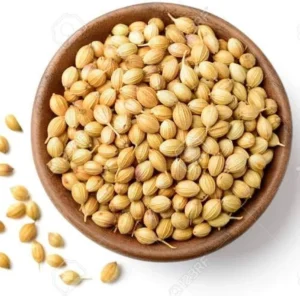
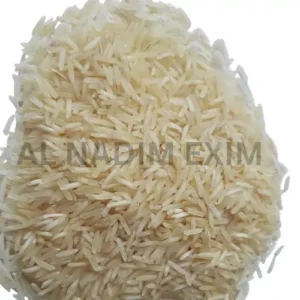
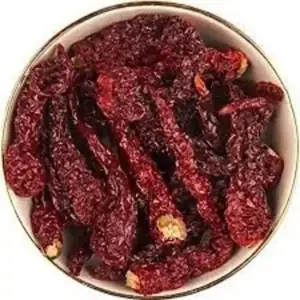
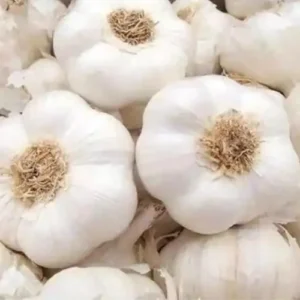
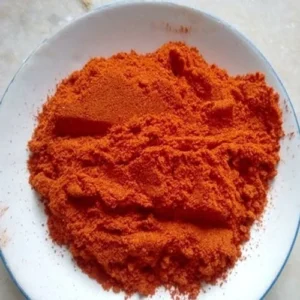

Reviews
There are no reviews yet.